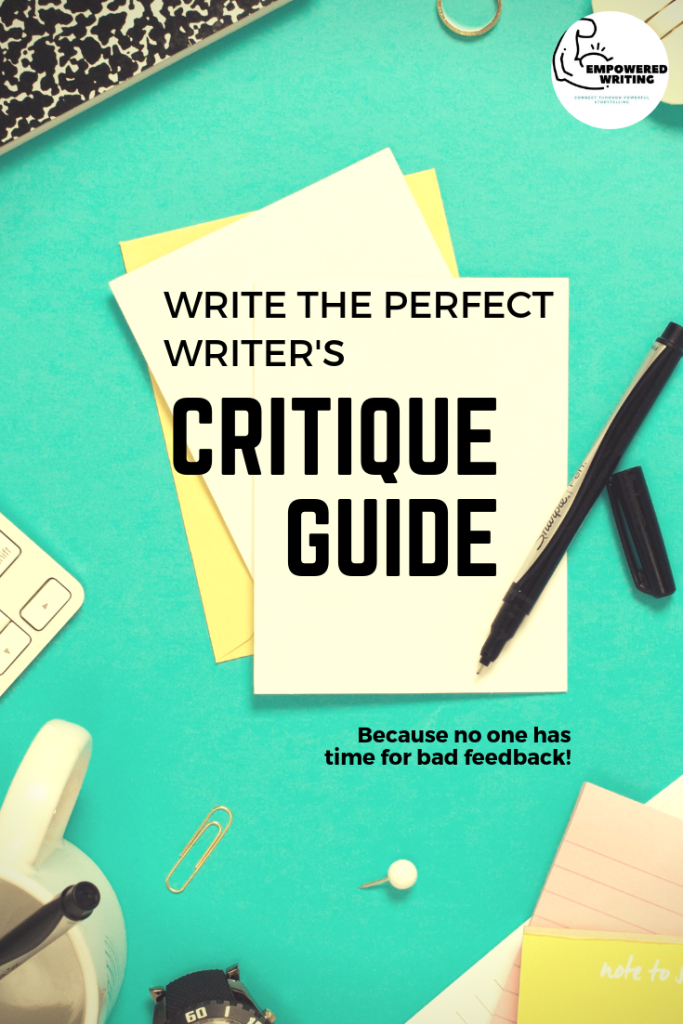Last week, I explained how writers can use face-to-face sessions of only thirty minutes to learn more about their writing projects and create productive next steps in the writing process.
This week, I’m going to spend some time talking about WHY you would want to do this. It may seem silly to schedule face-to-face discussion sessions into your writing time. But it’s one of the most valuable things you can do, ensuring you receive feedback that is both truthful and collaborative.
Truthful Writing Feedback

First, receiving writing feedback face-to-face can ensure that feedback is honest and true. When someone reads your work and writes out comments, they have time to react, process that reaction, and moderate that reaction through edited words on a page. This means your feedback may be only half the truth. Your partner has time to hide their actual gut reaction.
This could be good. It may mean a partner with a snarky streak has time to tone it down so there are no hurt feelings.
But sometimes writers need the gut reaction because that’s how your readers will respond to your writing. Talking things through face-to-face gives you access to facial expressions, body language, and unmodified language that reveals how your partner really feels about your writing.
Collaborative Interaction

Second, the feedback received during face-to-face talking sessions is more collaborative. Have you ever read someone’s work and had burning questions about it that you need answers to RIGHT NOW? Conversely, have you ever read someone’s feedback and thought, “I don’t know what this means!” In either of these cases, if you seek answers to your questions, you’ll end up in a long game of email tag that may or may not result in clarification. However, if you TALK to someone about your work, you can ask questions immediately and immediately receive answers.
I can speak to the importance of this second benefit from years of being a writing center tutor. Sometimes fifteen minutes was all my students needed to gain clarity on their work. Here’s what it was like:
Minute 1: They are nervous, fumbling with papers, apologizing for their bad writing. I’m smiling, telling them not to worry, and learning about their project.
Minute 5: I’m asking a boat load of questions. They think hard about how to answer and tell me what they know, even when they struggle to answer. I’m taking notes on everything they say.
Minute 10: I’ve read their writing or notes or outline. I’m praising their strengths, explaining how that good writing is good. They start to relax. I hit them with the big questions that lead into the major problems with the paper. They answer. I ask more questions. They respond.
Minute 15: The student is smiling. So am I. We’ve had a hyper-speed brainstorming session. The student has an actionable plan to complete or improve the project. This plan is guided by the student’s needs and desires for their work as well as by my writing know-how. The student also knows MORE about writing than they did fifteen minutes ago, which is a victory for me.
I often had students tell me that these sessions were some of the most valuable minutes they spent during their college careers.
I believe them because I’ve used this face-to-face systems in my own writing outside of academia. While writing the first few drafts of my middle grade novel, my writing partner and I would meet through Skype three to four times a month to workshop our novels face-to-face. These meetings not only helped us clarify our goals, problems in our writing, and what we were doing well, they also allowed us to get immediate feedback on new ideas in real time. For instance, one conversation looked something like this:
“Hey, J, I’m thinking of cutting this one character. What do you think?”
“Hm. Why?”
“He serves no real purpose in the novel. Character X does the same stuff.”
“Good point. I think I like it. But how would it change the way the other characters relate to Character X? Do you think it would?”
“Hm. Great point. I’ll think about it some more.”
In the span of a minute or two, I was able to pose a new idea and get feedback. And it wasn’t just yes/no feedback, it was feedback that made me consider my decision in a new light, consider how the decision would make ripple changes throughout the rest of the novel. THAT’S valuable feedback.
Face-to-Face Feedback is QUICK Feedback

True, the same conversation could happen over a direct message system or comment boxes inserted into Word documents, but not so directly, not so QUICKLY.
As we all know, there’s not a lot of time to waste these days.
I know your routine.
You wake up before the sun, squeeze in reading the news or a work out or both together, get the kids (if ya got em) and yourself ready for the day, drop them off, drop yourself off, work all day, eat and guzzle coffee when you find a free sec, fix car problems, kitchen problems, body problems with appointments that seem to suck your time, cook, clean, say hey to friends you used to have, binge a show if you’re lucky, and of course, write.
So if you need great feedback QUICK, consider face-to-face feedback sessions with a writing partner. What’s better than a writing strategy that allows you to watch one extra episode of Mr. Robot or Westworld (or pick your poison) every week?

Do you incorporate face-to-face discussions into your writing process? Or do you do it all through comment boxes and emails?


One thought on “30 Minutes to Better Writing: How Talking (Yes, actually talking) Benefits Writers”